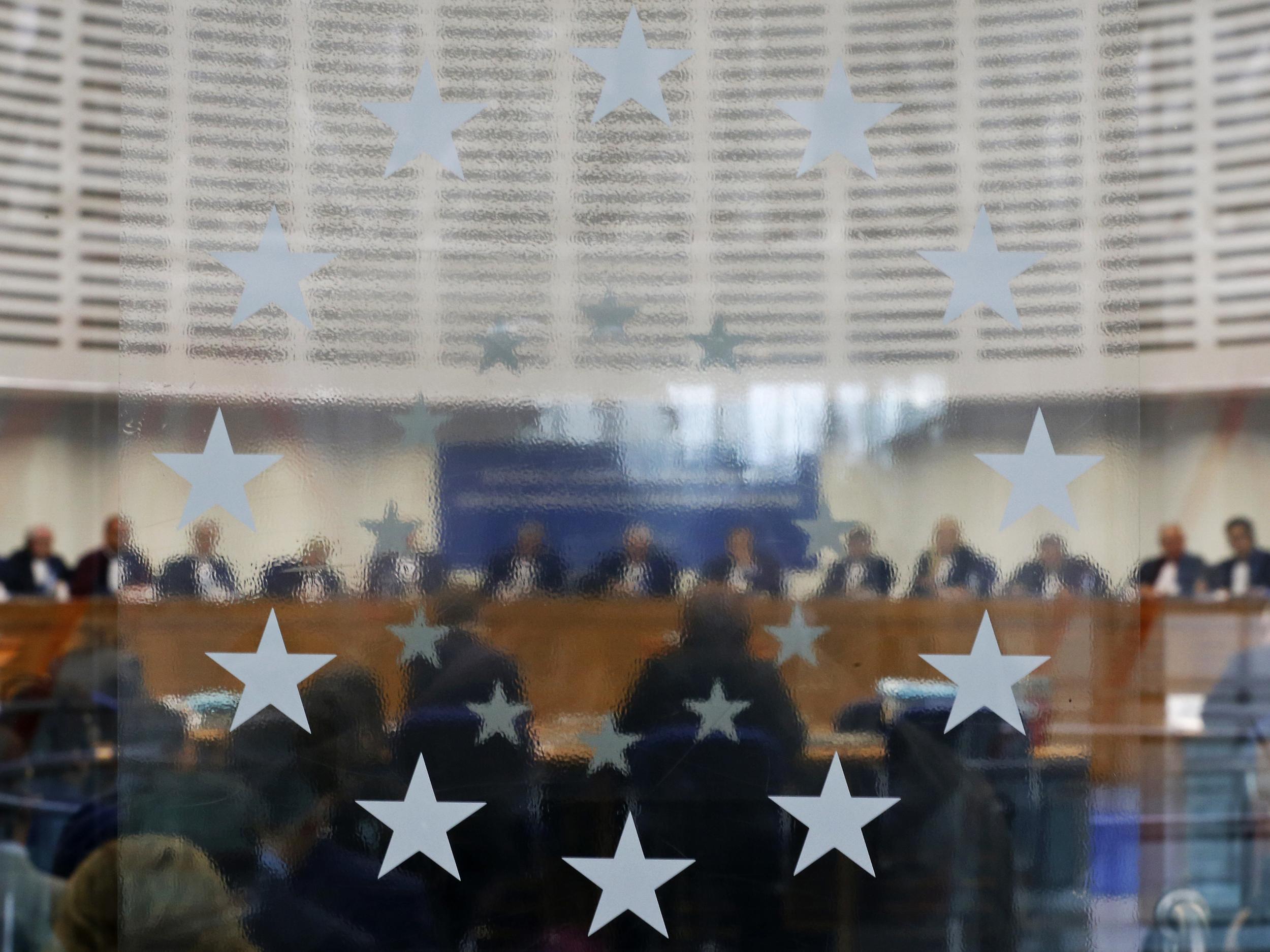Brexit: Britain must stay in European Court of Human Rights if it wants a trade deal, Brussels to insist
Leaked European Parliament motion seen by The Independent shows new list of demands

Britain must agree to stay under the jurisdiction of the European Court of Human Rights if it wants a trade deal with the EU, Brussels will insist – in a move likely to trigger another row with right-wingers in the Conservative party.
A leaked draft European Parliament motion obtained by The Independent and due to be published in the coming weeks spells out a series of new demands from the body’s Brexit leadership for the next phase of talks – and threatens that it will use its veto if they are not met.
Stipulations include “that the UK continues to guarantee fundamental human rights as laid down in the European Convention on Human Rights” as well as other demands to automatically implement new EU laws created after 2019, and a ban on “opt-outs” from Brexit for Britain’s car-making and financial services industries.
The motion says that the Parliament “will accept a framework for the future EU-UK relationship as part of the withdrawal agreement only if it is in strict concordance” with the list.
Another section of the leaked motion gives an insight into negotiations so far, revealing that the UK has guaranteed the rights of the families of EU citizens living in the UK, including as-yet unborn children, and accepted European Court of Justice jurisdiction over their rights. It also shows that the EU has accepted that British citizens living in the EU at the point of Brexit will be able to move freely between other countries – a point especially important to frontier workers.
Theresa May’s position on the European Court of Human Rights is unclear; last year she said the UK “should leave” the court “regardless of the referendum result”, arguing that it “can bind the hands of Parliament, adds nothing to our prosperity, makes us less secure by preventing the deportation of dangerous foreign nationals”.
The Conservative 2017 manifesto however said the UK would not leave the ECHR “while the process of Brexit is under way” although it did not rule out leaving it after the process is complete.
Following that manifesto commitment and a further terror attack, however, the Prime Minister said in a speech ahead of election day 2017 that if “human rights laws get in the way” of her security policies she would change them – calling into question the earlier pledge.
Whatever the Government decides, however, increasingly influential elements of the Conservative Party are set on leaving the convention. Jacob Rees-Mogg, one of the bookies’ favourites for the next Tory leader, has said ECHR rulings have “no support from the democracy of the United Kingdom” and that “allowing foreign judges to rule on our laws lacks legitimacy”. Former Justice minister Lord Faulks in April urged Ms May to use the opportunity of Brexit to quit the convention.
Though the Parliament is not directly conducting Brexit negotiations, it holds a veto on any final deal, and its Brexit coordinator Guy Verhofstadt has been working closely with the European Commission’s chief negotiator Michel Barnier.
The motion, which is almost certain to be passed by a large majority, was due to be unveiled and voted on during a European Parliament session in Strasbourg next week. The Independent however understands that voting on it could be postponed because of the difficulties the Prime Minister is facing over the issue of the Northern Ireland border.
Theresa May has said she will return to Brussels this week for more talks after further consultation with the DUP, who blocked a deal when she travelled to the EU capital on Monday for a working lunch with Jean-Claude Juncker. No date or time for her arrival has yet been set, however.
Brexit: the deciders
Show all 8The European Court of Human Rights, whose seat is in Strasbourg, enforces the convention upon its signatories.
The UK’s domestic law also extends the convention’s reach with the Human Rights Act, which allows British courts to deal with cases before they go to Strasbourg and also makes a wider range of public authorities liable to it.
Subscribe to Independent Premium to bookmark this article
Want to bookmark your favourite articles and stories to read or reference later? Start your Independent Premium subscription today.

Join our commenting forum
Join thought-provoking conversations, follow other Independent readers and see their replies